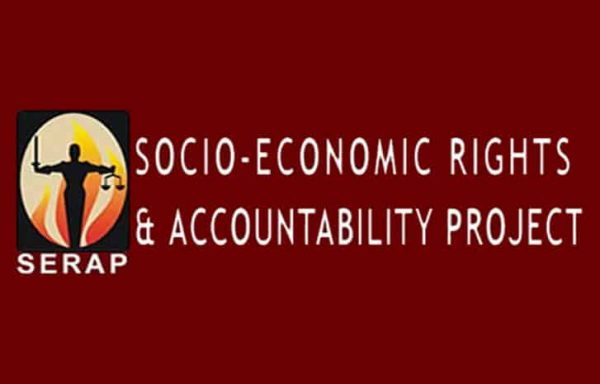SERAP Threatens Action Over Bill to Regulate Bloggers

Socio-Economic Rights and Accountability Project (SERAP) has issued a strong appeal to Nigeria's legislative leaders, urging the withdrawal of a controversial bill that threatens to stifle online expression. The bill in question, an amendment to the Nigeria Data Protection Act 2023, seeks to regulate the activities of bloggers operating within the country.
SERAP's call is directed at Senate President Godswill Akpabio and Speaker of the House of Representatives Tajudeen Abbas. The organization emphasizes the need to ensure that any amendments to the Data Protection Act must uphold the rights of bloggers and journalists, safeguarding the fundamental human rights of all Nigerians. They also advocate for an end to unnecessary restrictions on online content.
The contentious bill, officially titled “A Bill for an Act to Amend the Nigeria Data Protection Act, 2023, to Mandate the Establishment of Physical Offices within the Territorial Boundaries of the Federal Republic of Nigeria by Social Media Platforms and for Related Matters,” has already passed its first and second readings in the Senate. It proposes regulations that would require bloggers to register local offices and join recognized national associations.
SERAP's Deputy Director, Kolawole Oluwadare, conveyed the organization's concerns in a letter dated April 12, 2025. The letter asserts that the bill is a thinly veiled attempt to revive the widely rejected social media bill. SERAP warns that if enacted, the bill could be used to ban major social media platforms, including Facebook, X (formerly Twitter), Instagram, WhatsApp, YouTube, TikTok, and independent bloggers, should they fail to establish and maintain physical offices in Nigeria within 30 days.
SERAP's letter stresses that lawmakers should not act as arbiters of truth. Regulating bloggers and forcing them to associate would severely restrict freedom of expression, leading to censorship. The bill could also be used to block Nigerians' access to social media platforms, violating their fundamental rights.
The organization also highlights the potential economic consequences of the bill, noting that many businesses rely on foreign tools, services, and technologies. Forcing international tech companies to establish physical offices in Nigeria would violate the principle that freedom of expression applies regardless of frontiers.
SERAP has vowed to take legal action if the National Assembly fails to withdraw the bill and President Bola Tinubu assents to it. The organization argues that regulating bloggers could muzzle dissenting voices and suppress criticism of the government.
SERAP emphasizes that the proposed amendment fails to meet the requirements of the Nigerian Constitution and international human rights treaties. It could violate the rights to privacy, peaceful assembly, and association.
The organization concludes that the bill is incompatible with Nigeria's obligations to respect and ensure the right to freedom of opinion and expression. It poses a significant threat to journalists, human rights defenders, and civil society organizations critical of the government, stifling democracy and media freedom.
SERAP asserts that mandatory regulation of journalism is incompatible with freedom of expression and that bloggers should not be required to register with the government. Blogging plays a crucial role in the free flow of information, and bloggers should never be forced to disclose their sources.
The organization reminds Nigerian authorities of their legal obligations to ensure an environment where diverse opinions can be freely expressed and debated. Restrictions on freedom of expression must be proportionate and target a specific objective without unduly intruding upon the rights of targeted persons.
SERAP references the 2005 Joint Declaration of special rapporteurs on freedom of expression, which states that no one should be required to register with or obtain permission from any public body to operate an Internet service provider, website, blog, or other online information dissemination system.
The organization also cites the 2011 Joint Declaration on Freedom of Expression and the Internet, which highlights that regulatory approaches in the telecommunications and broadcasting sectors cannot be simply transferred to the Internet.











